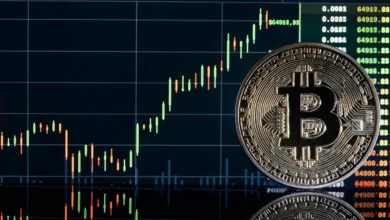
With the recent sanctions placed on eight Bitcoin Market wallets linked to the Russian cryptocurrency exchange Garantex and the Yemeni Houthi rebels. The United States has taken significant action against terrorism financing. This action, carried out by the Office of Foreign Assets Control (OFAC) of the U.S. Department of the Treasury, seeks to upset the financial systems supporting the Houthis’ destabilizing actions and their participation in arms procurement and other illicit activities.
Cryptocurrency and Financial Networks
Since 2014, Yemen’s armed political and religious group Ansar Allah has fought the internationally recognized Yemeni government violently. The Houthis have increasingly used various financial tactics to finance their operations and avoid international sanctions, including bitcoins.

Russian-based bitcoin exchange Garantex has come under American investigation for allegedly helping financial transactions connected to sanctioned people and companies. The trade has been accused of letting transactions support terrorism and assisting in the laundering of illegal money. Garantex has kept operations despite earlier warnings from U.S. authorities.
Houthi Bitcoin Funding
The eight OFAC-approved bitcoin wallets directly relate to the Houthis’ attempts to fund their activities. Investigating blockchain analytics companies like TRM Labs and Chainalysis found that significant volumes of cryptocurrencies, often in the millions of dollars, were funneled from the wallets. Garantex handled about $45 million in bitcoin transactions, highlighting the exchange’s importance in supporting the financial networks of the Houthis since it has been demonstrated to help illegal money transfers.
The wallets were linked to Houthi financier Sa’id al-Jamal, who has been linked to buying missiles and drones for the Houthis. The wallets were part of a larger terrorism financing network. This shows how funding modern warfare with digital currency enables the Houthis to sidestep conventional financial institutions that limit capital.
Houthi Financial Sanctions
Designating these wallets allows the U.S. government to freeze these organizations’ assets and bar Americans from engaging with approved parties. Restricting Houthi access to global finance is a major change from this action. This measure disrupts the Houthis’ access to funds for weaponry and other disruptive acts because they use complex financial arrangements, including cryptocurrencies.
The penalties also clearly warn other financial institutions, bitcoin exchanges, and anybody engaged in illegal activity. They underline the need to follow international anti-money laundering (AML) and counter-terrorism financing (CFT). The rules and the hazards involved in enabling transactions that benefit approved groups or people.
Combatting Terrorism Financing
e-wallets’ classification results from a more significant U.S. government endeavor to stop worldwide terrorism financing. Targeting financial networks that support groups like the Islamic State (ISIS), Hezbollah, and the Houthis, the U.S. has been progressively preoccupied with often turning to digital currencies, which provide a degree of anonymity and decentralization. These groups make monitoring and stopping unlawful activity challenging for conventional financial systems
The United States has also been working with foreign colleagues to improve the control of cryptocurrencies. Tools for blockchain research have become indispensable in spotting illegal financial transactions and opening up the industry to what has always been somewhat opaque. Besides implementing blockchain technology, the U.S. Treasury has been striving to address gaps that let terrorist groups and criminals use digital resources.
Cryptocurrency Compliance Challenges
In light of increasing concerns about using Bitcoin and Cryptocurrency in illegal activities, there is growing pressure on the cryptocurrency industry to implement stronger compliance measures. Cryptocurrency exchanges are being urged to adhere to the same regulatory standards as traditional financial institutions. Including Know Your Customer (KYC) and anti-money laundering (AML) protocols.

Some exchanges have taken proactive steps to avoid platform misuse, but others are hesitant to apply limits due to worries about user privacy and cryptocurrency industry growth. As Garantex’s sanctions show, the government will act decisively against exchanges and wallets that finance terrorism and evade sanctions.
Final thoughts
The latest U.S. penalties on eight bitcoin wallets connected to the Houthis and Garantex represent a significant turn in the continuous fight against terrorism funding. The penalties target the financial networks of terrorist organizations, especially those using digital currencies.
The United States is strongly stating the need to control and guarantee the Bitcoin markets. Governments and businesses must cooperate to stop using digital assets to finance violent and destabilizing actions. Digital assets are becoming an increasingly important tool in global finance.








